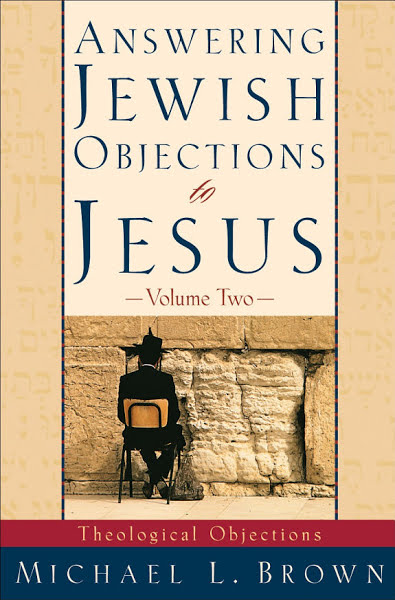I was struck by this passage by Dr. Michael L. Brown, at the start of his extended attempt to answer all the main objections by Jews to Trinity and Incarnation doctrines:

[Objection] 3.1. Jews don’t believe in the Trinity. We believe in one God, not three.
[Answer:] Just as Messianic Jews probably misunderstand some of the things you believe, I think you misunderstand some of the things we believe. We do not in any way believe in three gods. Our God is one, and his name the LORD (or Yahweh, to Orthodox Jews as HaShem). He revealed himself to us through his Son, the Messiah, who is the very image and reflection of God, and he touches us and speaks to us by his Spirit. These are deep, spiritual truths. Later theologians labeled this relationship the Trinity — God as a triune One. But the word Trinity is not found anywhere in the New Testament, and it may confuse the issues for you.
Answering Jewish Objection to Jesus, Volume II, p. 3, bold emphases added.
Three observations here. First, note that Dr. Brown here and elsewhere consistently uses singular personal pronouns for the one God. This is traditional, although some trinitarians think there are three selves in the Trinity, not one. But Dr. Brown seems to be on the side of one-self trinitarians. This idea that the one God is a single self fits with Christian practice and experiences, as well as with the fact that in the OT God has proper name. (But, who is that one self? Keep reading.)
Second, notice that for Dr. Brown this one God has a Son. Obviously, this is a central NT claim. But it is not, properly speaking, the Trinity which has a Son – rather, it is the Father. So by “God” so far, it is clear that Dr. Brown is thinking about the Father. (Again, like scripture.)

Third, but then, following catholic traditions since the late 300s, he asserts that the one God is the Trinity, “God as a triune One.” This is where later traditions clash with scripture. If the one God is triune, then the one God is not the Father, who is not supposed to be triune. So Trinity theories must deny that the one God just is the Father. The Father instead becomes one of three “Persons” in which the one God exists.
But in so doing, they contradict clear New Testament teaching. Here, the Protestant must choose between later traditions and clear apostolic teaching.

For his part, Dr. Brown seems to want to have it both ways. In theology mode (e.g. p. 12), he says that God is triune. In Bible mode, he’ll say that God is the Father. (e.g. p. 11) Sensing the incoherence, he’s quick to appeal to “mystery.”
But that’s no help, because this stance is demonstrably incoherent, as I’ll explain in gruesome detail in the first trinities podcast of 2019, out on January 7. There, I’ll explicitly formulate the demonstration, and then suggest how you, the thinking Christian who wants to be faithful to clear biblical teaching, can go about deciding which way to respond to it.
